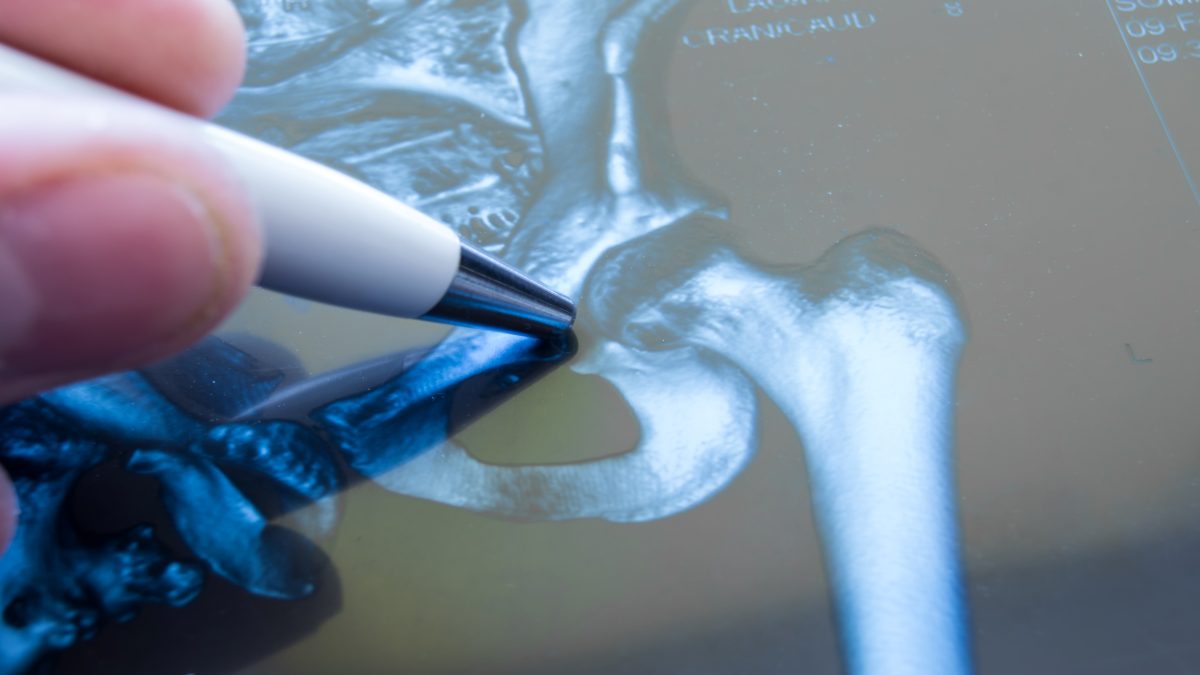Hip fracture symptoms
Hip fracture symptoms and signs typically include:
- The inability to move the leg or hip right after a fall
- Severe pain in the groin or in the hip
- Inability to bear weight on the affected side
- Bruising, swelling, and stiffness in the hip joint and around the hip fracture
- Leg shortening on the injured side
- Outward rotation of the leg on the side of the hip fracture
Hip fracture diagnosis
Often, doctors can diagnose a hip fracture based on symptoms and signs such as the leg and hip position. An X-ray is usually obtained to confirm a hip fracture diagnosis and to determine its exact location.
If a hip fracture does not show up on an X-ray in the presence of signs and symptoms, an MRI or bone scan may be recommended to see if a hairline fracture is present.
Most often, hip fractures occur in one of two places in the femur. This is the large bone in the thigh that runs between the pelvis and the knee. Hip fractures most frequently occur in either the:
- The femoral neck. This is found in the top region of the femur, just below the ball of the hip joint.
- The intertrochanteric region. This area is located a little way down from the hip joint, in the portion of the upper leg bone that juts out.
Not as commonly, another kind of hip fracture can occur. This is known as an atypical fracture. It happens in people who have been taking medications known as bisphosphonates for an extended period. These medications help increase bone density.
Click Here to read about Treatment.
















Leave a Reply
You must be logged in to post a comment.